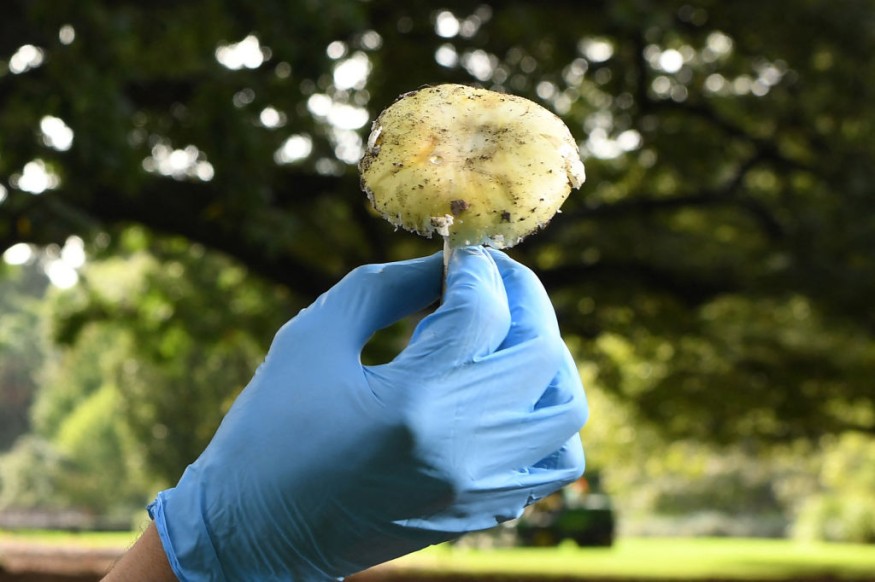
Several probiotic cultivars in the human intestine can release chemicals that may add value to agitated ulcerative colitis or IBD, as showed in latest reports conducted by experts.
Irritable Bowel Disease Caused by High-Damaging Toxin Fungus
Once managed and kept in alignment, the high-damaging Candida albicans probiotic variants are really not generally an issue, nevertheless, in the intestinal fortitude of those with IBD, the microorganisms seem to proliferate, provoking swelling, as per ScienceAlert.
The study was based and concentrates on ulcerative colitis (UC), a type of IBD characterized by inflammatory condition and usually erosion of the walls of the vessel's bowel. Fungi are also plentiful and diverse in this section of the gastrointestinal.
When investigators looked more closely, they discovered that some probiotic strains were generating a powerful and effective toxic substance known as candida lysin, which can potentially harm immunologic system and tissues to result into chronic inflammation.
Toxin-producing bacteria increased the number of T-cells and white blood cells known as neutrophils in rats, which may simultaneously promote inflammatory and cause serious side effects.
Even when the unhealthiest rodents were administered with steroids, which is a standard therapy for UC, the high-damaging races of intestinal fungus persisted to secrete chemicals, which might illustrate why existing IBD therapies frequently struggle to relieve discomfort.
According to Iliyan Iliev of Cornell University's Weill Cornell Medicine their discoveries show that C. albicans cultivars do not induce unexpected inflammatory responses in a host with undamaged immunogenicity.
The researchers are already conducting numerous follow-up investigation to determine how toxin-producing bacteria exacerbates the digestive tract and which sick people react positively to antimicrobial activity therapies.
Inside the laboratory, researchers discovered that the candidalysin bacterium generated by yeast can harm certain inflammatory responses classified as macrophages.
Experts also explain that they currently don't understand exactly if certain germs are obtained by individual participants over the phase of illness or if they have constantly been around and constitute a concern throughout bouts of clinical infection. Investigators used mice frameworks to see how these variants affect inflammatory response.
However, the microbe does proliferate in the bowels when aggravation is prevalent, and this might be a variable that determines responsiveness to treatment in our animals and possibly in people, as posted in media outlet - Nature.
The probiotic strains discovered in individuals would never multiply in mice lacking gastrointestinal infection. In comparison to the microbiome, which seems to be the population of intestinal bacteria, there is relatively limited study on the fungus in our bowels, referred to as the mycobiota.
How the Toxic Fungus Contributes To Bowel Disease
In other circumstances, for the vast majority of individuals with C. albicans the strains are not really an issue. Nevertheless, in the intestines of those with UC, where inflammatory response is prevalent, most of these fungal isolates appear to flourish, inflicting greater damage than benefit.
Neutrophils are frequently more common in people with aggressive IBD, and the current findings show that their prevalence may be related to an increase in fungal pathogens.
In mice experiments, blocking the cytokine transcription factors that activates neutrophils lowered total gastrointestinal inflammatory. While previous research has found a link among the mycobiota and IBD, this is among of the earliest to investigate the process underneath this association.
Fungal strains might flip towards their habitat and cause excessive aggravation. As a result, this adaptive mechanism might offer pharmaceutical developers with a subject for prospective IBD therapies.
When investigators examined the colons of 40 UC sufferers to the colons of 38 non-IBD counterparts, they discovered that C. albicans genotypes were over-represented in the intestines of individuals with UC.
The more serious the condition, the higher probable Candida was to be found in the participant's intestines.
Related article : 50-Year-Old Man from India Who Suffered from a Stroke Develops a Black 'Hairy' Tongue
© 2026 NatureWorldNews.com All rights reserved. Do not reproduce without permission.





